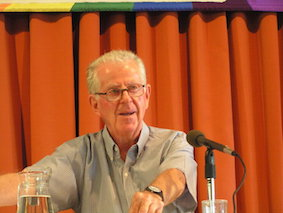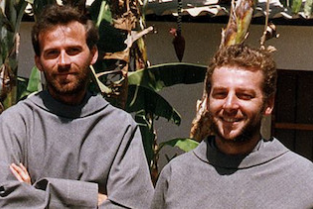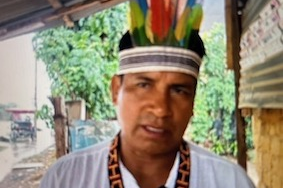Letter from Peru under Covid-19 lockdown

Fr Peter Hughes
As Peru enters its eighth week of lockdown the general sensation is increasing anxiety and fear. The majority of the people now face the stark dilemma of whether it is best to die of hunger or the virus. The initial expectation of flattening the curve - reduction of numbers infected and deaths - has not worked out. The official daily report shows no signs of change on that all-important front.
The numbers in Peru are now the highest in Latin America, with the exception of Brazil. This is disappointing because the government acted rapidly and has had massive support for implementing the lockdown as distinct to what is happening in Brazil.
The future is perceived in different ways. For the majority, especially the poor and the vulnerable, it looks very scary. Obviously, it is not as threatening for people who have security, employment and regular income. This country, like many others, still suffers from serious economic, social and cultural divisions, inequalities and wounds that have not healed. We live in a violent society, with very high rates of criminality. Corruption is rampant in public life. Three of the last four elected presidents are in prison, the other took his own life, and all have embezzled mega amounts. The state and its institutions are weak, inefficient and unprepared to meet the demands of the ravages of Covid-19. Economic growth has enriched foreign investment and the private sector but 70% of the population are either self-employed without jobs or unemployed.
On the ground, even though the government enjoys over 80% support for the lockdown, the implementation has been uneven. Most people buy food in the market every day, living and surviving from one day to the next. Most don't have refrigeration. Crowded market scenes are foreign to social distancing and the wearing of masks and gloves. Inevitably, foodstuffs and money travel through many hands. Detention and imposing fines on offenders hasn't worked. Increasing curfew hours have even resulted in increased crowding in the reduced time frames. A major problem has been the cultural difference between officialdom and the habits/customs of the people. For example, imposing a total lockdown in Holy Week was a disaster in the urban areas in Lima and on the northern coast. Unfortunately, the figures have rocketed in Lambayeque, Piura and Tumbes. Most people have to survive in small, overcrowded houses. Some manage well, but anxiety levels and depression are on the increase due to fear of the future.
State economic relief has been small but most welcome. The problem has been the distribution through the banking system where crowds, unable to observe social distance, are inclined to storm outlets. People don't have access to banks in rural areas, Andean villages or in the Amazon region. Statistics say that 85% believe we will ultimately overcome the virus and triumph; 51% of the population have more fear of dying of hunger; 43% fear more about losing their jobs than the virus. Schools are struggling to implement online classes - teachers and students have been caught quite unprepared, lacking skills and technology. Only 8% can work through digital communication from home.
New heroes have emerged - overworked health workers, doctors, nurses, police, army and street cleaners are applauded every night.
On the other extreme, a major flashpoint is the prison situation, a veritable time bomb. Gross overcrowding affects 100,000 inmates in 68 penal institutions whose total capacity is for 40,000. Smouldering violence can erupt in an instant. Before Covid-19, levels of TB, malaria and HIV were rife. Prisoners are dependent on their families for medicine. A significant number of non-threatening people could be released but decisions are located in the links in the chain of a corrupt judiciary.
Another sad story is the absolute negative reaction of the powerful economic elite in the country, who between them amass over 20 billion dollars per annum. They have refused the suggestion for a solidarity tax on the huge fortunes in Peru.
Going back to the old normality in Peru? This society has been highjacked by neo-liberal economic power where the market rules supreme. The remnant of anything like the primacy of the common good supported by a welfare state has long gone. What the future holds is unknown. We have to struggle together to build the new normal.
Covid-19 is a global virus, but is different in the global south. It has surnames: income, hunger, debts, rent, massive job loss and unemployment, family violence, no school. Yet, Peru has survived mega disasters… hope springs eternal. Today the sun shines, the birds sing, nature has had a wonderful respite. The river Rimac is crystal-clear - free from mining waste and mega refuse that has placed it in the top 10 of the dirtiest in the world. But how long will it last?
Peter Hughes is based at the Columban house in Lima, Peru.





















